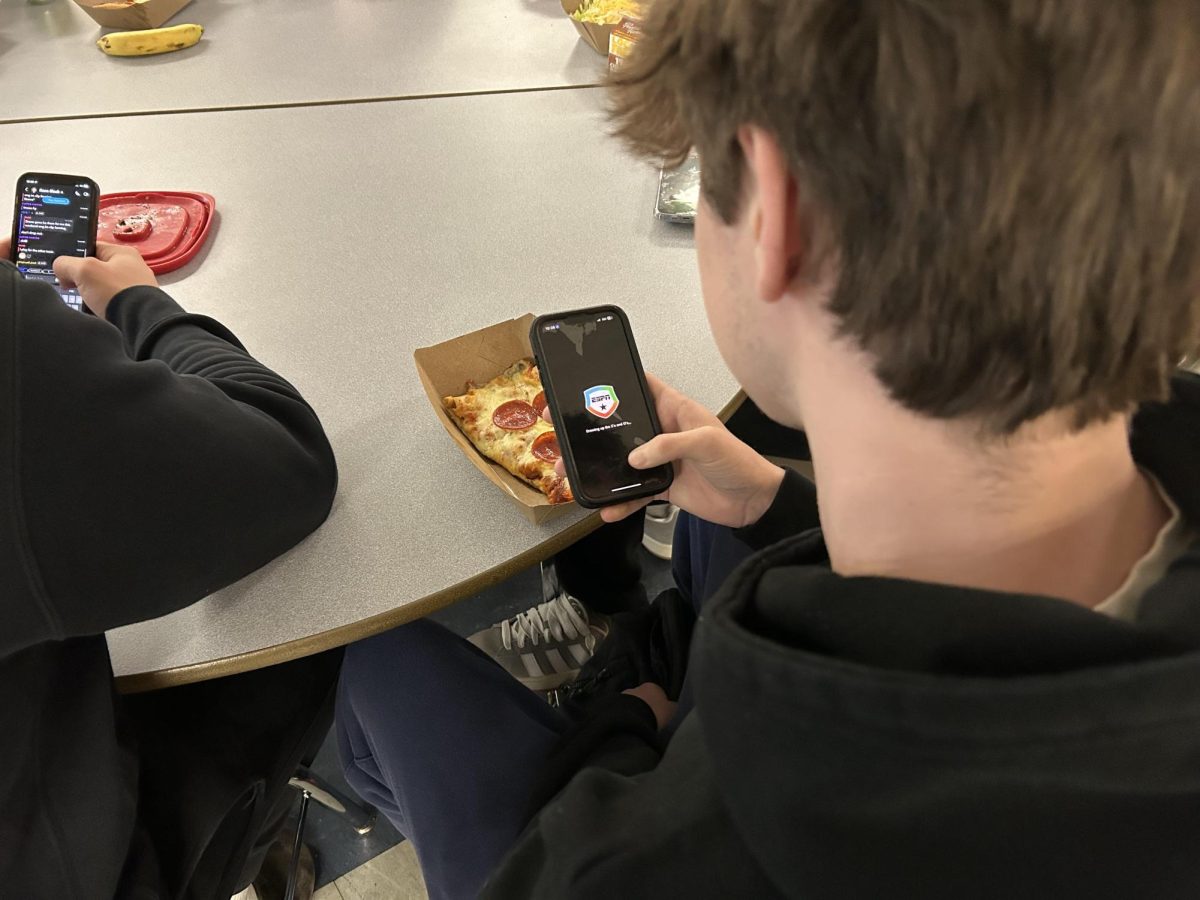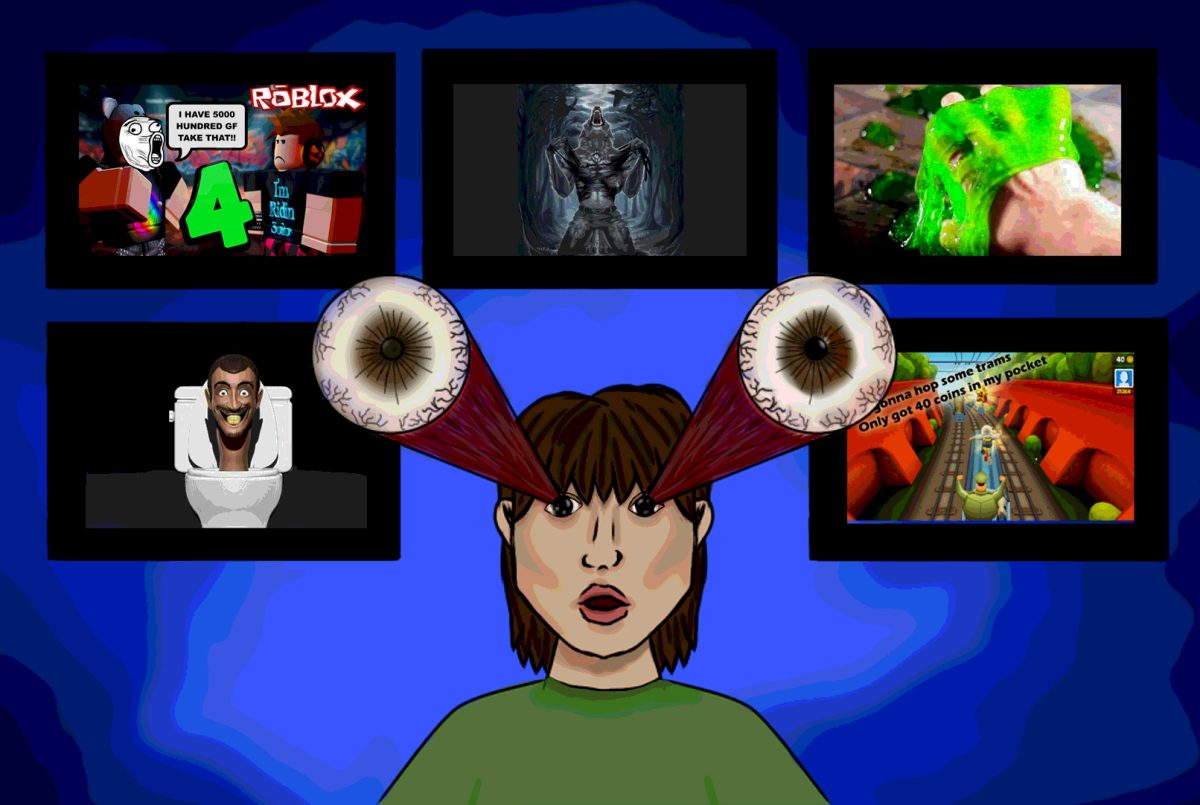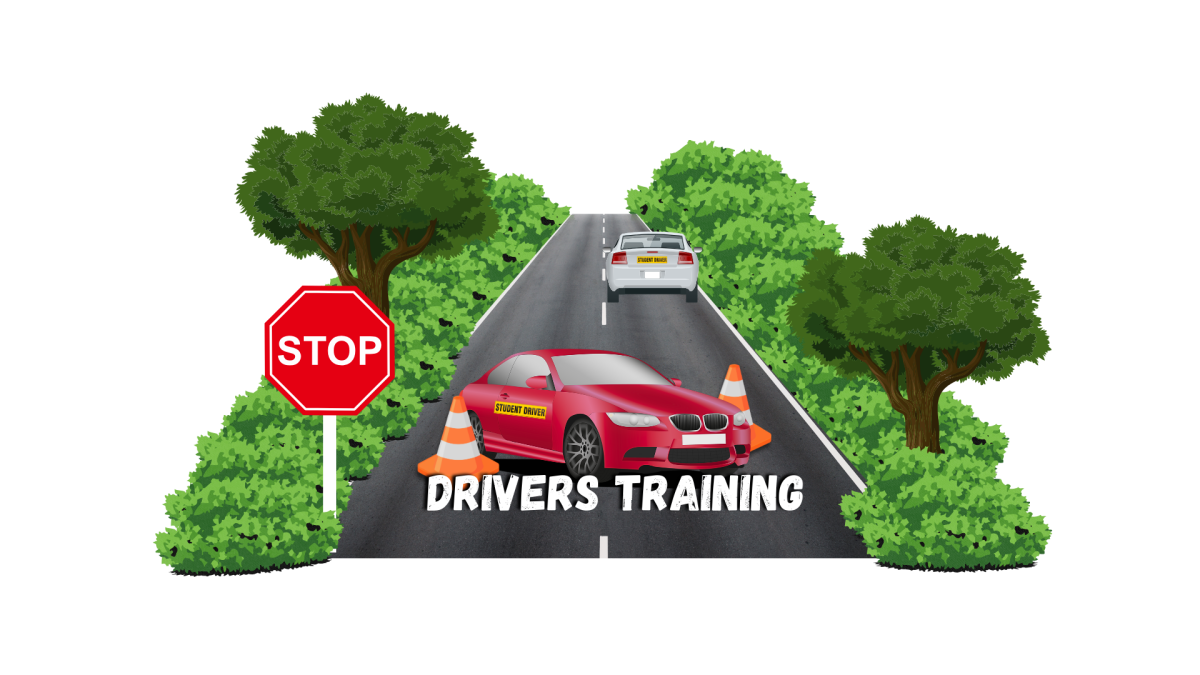
I love education, but I hate going to high school. I have learned how to cope with the pains of public school for eleven years of my life and so has almost everyone else I know. It’s not just learning how to deal with waking up early, hours of homework, finals week, and more, it’s learning how to survive things that most people don’t think about.
Students have had to learn how to deal with being indoors for seven hours of the day. They’ve had to learn how to manage with a deprivation of sunlight or breathing fresh air. I, and many I know, have had to learn how to put our own mental health on hold for school.
Public education doesn’t sit well with me. It’s not something I need to live the life I want in the future, which won’t involve precalculus and college readiness. High school promotes a loss of individual autonomy. Instead of growing as a person through education, you become trapped in an institution for your entire youth.
According to PsychCentral, one in every four teenagers experience a major depressive episode during high school, and the average age for this to begin is as young as 14. Many adolescents go undiagnosed and untreated which leaves them to suffer in silence.
The World Mental Health Survey found that “in high-income countries, like the United States, fewer than half of adolescents with a mental health problem receive treatment.” Depressive episodes and other mental health issues often affect performance in school and can lead to failing grades, poor attendance, lack of interest in classes and the absence of enjoyment of school. Being a student and prioritizing mental health is almost an oxymoron. When a student has, for example, two tests on Friday, practice after school every day, a paper due Thursday and homework every night, when do they have time to address a mental health problem and work to get better?
When the Centers for Disease Control conducted a survey of students in 9th through 12th grade in the United States, they discovered that “16 percent of students reported seriously considering suicide, 13 percent reported creating a plan, and 8 percent reported trying to take their own life in the 12 months preceding the survey.”
According to “Psychology Today”, in the United States, “High school and college students are five to eight times as likely to suffer from depressive symptoms as were teenagers 50 or 60 years ago.”
So many high schoolers have sacrificed so much just to do well in this environment. When there is so much pressure to attend high school daily and perform well in school, student’s mental health is not a priority to themselves or the school they are attending.
Why did this happen? For many people high school is an extremely toxic environment in which they can end up losing their sense of self and direction. School can be toxic when sexual harassment, bullying, peer pressure, and more all occur in the same building. Many teenagers do not find school a healthy environment. Why are we forcing all teenagers into this kind of an institution?
Many students simply do not have enough time or energy when school ends to live the life that they wish they could. According to a study by Indiana University, 22 percent of high school students have considered dropping out of school. Out of those students, 73 percent considered dropping out because they didn’t like school, 61 percent considered dropping out because they didn’t like the teachers, and 60 percent said they considered dropping out because they didn’t see the value in the work they were being asked to do.
High school should be optional in the same way that college is optional. There should never be a time when people must attend school. Traditional high school education does not always coincide with the lifestyle someone wants to live.
There are even alternative schooling options, like unschooling, that still enables people to go to college the way graduated high school students do. Unschooling is a form of homeschooling and a learning philosophy that emphasizes learner-directed education. These alternative options prove that high school is not at all necessary to prepare students for college.
According to a study from “Psychology Today”, a majority of the unschooled college students they interviewed reported “no difficulty doing the academic work” and were even at an advantage because of “high motivation and their high capacity for self-initiative, self-direction, and self-control.”
Because of unschooling and statistically better alternative schooling options around the world, our current public education system seems obsolete.
If I could be unschooled or live in a country with alternative learning options, I would enjoy my youth more and be a healthier, whole person and at the same time be prepared for college. Living in the United States where high school is not an option is infuriating when I know I would do better living much differently.
There’s no question that education is definitely a requirement for any society to function. People need to know how to read, write and perform specialized tasks in order for the United States to flourish. As one of the many people who does not want to live their life in the way most people do in the United States, when are we ever going to find the kind of education promoted in public high schools useful?
Ideally, choosing a job for the future is similar to choosing the lifestyle a person wants to live, given that the person is even able to choose their job. If someone feels best being outside, they can become a park ranger. If a student likes traveling and seeing new places, they can become a flight attendant or work in business. But as a teenager, I am not given the option to live the life that would fulfill me and make me the most content, which would be educating myself through self directed learning. The same is seen in the adult world. Many are forced into lifestyles/careers that they would not have chosen if they had been given more opportunities.
Around the world, many children don’t even have to opportunity to get an education or live the life that would make them happy. A lot of the flaws of the education system parallel flaws in the adult career world.
Donald E Heller is the dean of the college of education at Michigan State University. Four years ago, he supported his daughter’s decision to drop out of high school. On why he and his wife let this happen, he said, “We wish that public schools could provide a better learning environment for children who are square pegs and who do not fit into the round hole of a traditional, test-centric educational environment.”
Instead of attending traditional high school, Heller’s daughter took two years of classes on literature and composition at Michigan State. While this is not an option for most students whose dad is not a dean of college education at a university, these options should be available for all students.
High school should be optional so teenagers are more empowered to make decisions about how they want to live their lives.
Categories:
High School Should Be Optional
November 19, 2015
5
9
Tags:
- #LoyNorrix
- 2015
- alternative education
- alternative schooling
- alternative schools
- college
- depression
- Donald E Heller
- dropping out
- Education
- educators
- highschool
- learning
- loy norrix
- loy norrix high school
- loy norrix knight life
- Optional Education
- Optional Highschool
- School
- Sophia DeRango
- Student
- students
- suicide mental illness
- United States
- United States of America
- unschooling
More to Discover








Nope • Nov 28, 2024 at 4:40 pm
This is quite possibly one of the most ridiculous arguments I’ve heard yet
High School is required because you learn hardly the basics before 9th grade. While I agree that ATTENDANCE shouldn’t be so harshly enforced, we need to stop thinking that a 13 year old is mature enough to make adult decisions. This is one of the many reasons the pro-choice/pro-life discussion is so prevalent.
If you let me make those kinds of decisions when I was 13 I would have never set foot in another classroom.
Beyond that, there are so many people who claim to understand things like biology and make claims about their understanding of a topic that because they have only learned the BASICS of the topic, totally misunderstand how certain things work (Gender ideology for example)
While I maintain agreement about college being ridiculous for most people in 2024… High School and a post secondary education OF SOME KIND should be pursued and should be the standard.
Also…
Have you completely forgotten that at 16 you can drop out??? As though for most that isnt their 10th grade year??
I’ll never understand how people are out here advocating for their children to be quite literally dumber than our own generation… And we wonder why our nation is falling apart.
r • Mar 14, 2024 at 8:08 pm
you only used your experiences as the example for why all of high school should be optional in the US. what about children from low-income families that rely on high school ‘as their only way out’ or ‘only way to get out of the streets’? or ones that rely on school as their only way to get breakfast or lunch? you clearly come from privilege (but so do i) and you are only considering the first-world issues at hand. while YOU may not need precalculus for your prospective career, what about a math major, or someone going into engineering or statistics? schools aim to teach you a wide variety of subjects so that kids may find an interest in one and go to college to delve deeper into it, not just so everyone memorizes the same sets of facts…, and your point about depressive episodes are not necessarily because of high school: suicidal ideation and suicide attempts most likely have to do with underlying mental illness. depression is a very common trait in teenagers who are undergoing hormonal changes as part of puberty. high schools are also not officially responsible for child mental health support: that is what institutions like therapy centers and pediatric offices are for (which you cannot be a part of unless you attend high school and are educated enough!) balancing sports, music, academics, and home responsibilities is preparation for adult life, where you have no choice but to be able to handle everything happening at once: no one will avoid stress. your only example of a successful person was the daughter of a dean of college of education at MSU: hardly the average reader of this article or in the US. you did not go in depth about the benefits of unschooling either. i think that this article is a vindictive, misleading cry to your school-age pupils who similarly resent the effort of getting success in high school. you should honestly take this down.
dsaasd • Feb 6, 2024 at 2:09 pm
dsadasdasdasdasdasd
Anonymous • Aug 11, 2020 at 2:45 pm
It’s hilarious how talking about considering suicide is a commonplace thing nowadays, it’s almost expected once you’re in school.
Teacher • May 18, 2019 at 12:41 am
I think many teachers would appreciate if the students who didn’t want to attend did not attend. The students who wanted to learn from educated professionals would actually get the attention they desired.